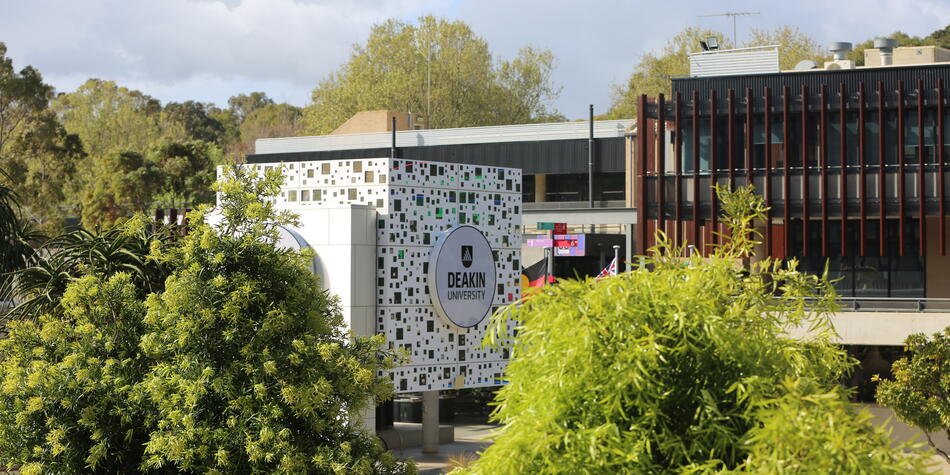How our research drives healthier food choices
Deakin University's Consumer-Analytical-Safety-Sensory (CASS) Food Research Centre is dedicated to working with the Australian food industry to make sustainable and healthier foods the preferred choice of consumers.
By using state-of-the-art facilities and renowned researchers, we aim to deliver high-quality industry relevant research, offer industry focused consulting services, as well as training the next generation of food scientists
Our objective is to identify and train students who show an interest in consumer, sensory, food safety and analytical science, and provide them with the opportunity to participate in different areas of industry-relevant research.
Visit the CASS website for more information
Our mission
Our team works towards:
- conducting the highest-quality consumer, sensory, safety and flavour research
- collaborating widely with the Australian food industry and government
- educating the next generation of food scientists
- promoting consumer, sensory, food safety and flavour analysis research both within Australia and internationally.
Join the CASS-Academy
The CASS-Academy is a training hub run by the CASS Food Research Centre for talented students interested in food and nutrition science research, including sensory and consumer science, food safety, flavour analysis, product development, nutrition and sustainability.
Across the 12-week program, students receive hands-on training alongside academic experts and industry professionals, while acquiring research skills in the area of food and nutrition sciences.
Our team
We have a number of widely published, highly esteemed researchers and PhD candidates working hard to deliver advanced knowledge and industry-relevant sensory and consumer science.
Our staff
| Name | Specialisation |
|---|---|
| Professor Russell Keast | Head of the CASS Food Research Centre Professor Keast has over 15 years experience in conducting sensory studies. He specialises in the association between taste, consumption and enjoyment. |
| Dr Dan Dias | Senior Lecturer Dr Dias has over 15 years of experience in analytical biochemistry, metabolomics and natural product chemistry. His current research focuses on identifying bioactive natural products from endophytes; applying metabolomics to assess the impact of Polyphenol Rich Sugarcane Extracts on inflammatory cell signalling pathways and determining the flavour retention and changes of foods during storage. |
| Associate Professor Gie Liem | Associate Professor, Sensory and Consumer Science Dr Liem has worked in the food industry and research institutes in the Netherlands and the US. His research focus is the food choices of children and cross-cultural research. |
| Dr Snehal Jadhav | Lecturer in Food Safety Dr Jadhav has experience in working on food industry-based projects in the area of food safety and microbial omics. Her current research focuses on using proteomics and metabolomics approaches to solve issues around food quality, spoilage and contamination. |
| Dr Andrew Costanzo | Lecturer in Nutrition Science |
| Dr Shirani Gamlath | Lecturer in Product Development Shirani Gamlath’s research interests are in designing healthy and sustainable food products. Shirani has expertise in food processing mainly in food extrusion technology and product development in plant based products. |
| Simone Lewin | Project Manager, Associate Research Fellow |
Researchers and PhD candidates
| Name | Specialisation |
|---|---|
| Kathryn Colla | Measuring dynamics of liking: laboratory versus real-life environments using advanced sensory techniques |
| Yuying Feng | |
| Akansha Gupta | Development of Next-Generation Barista Quality Plant-Based Milk Alternatives with Improved Quality Characteristics |
| Bella Hartley | Investigating umami as a basic taste and the association with diet and genetics |
| Claudia Hartley | The association between carbohydrate taste and performance |
| Mayushi Jayakody | Flavour retention and changes of foods during storage |
| Jookyeong Lee | The influence of oral tactile acuity on food texture acceptance in fussiness of children aged 5 to 12 years |
| Anesu Magwere | Linking molecules to sensory traits for next generation plant-based milk |
| Agnes Mukurumbira | Investigation of plant-based antimicrobials for applications in food packaging |
| Bharti Sharma | Exploring Off-Flavours in High Protein Plant-Based Milk Alternatives: Impact of Processing Techniques on Sensory Perception, Physiochemical Properties, and Stability |
| Heng Wan Sin (Valarie); | Rapid detection of bacteria in contaminated foods using gas-chromatography |
Contact us
Get in touch with us with any questions.
+61 3 9244 3753
Email CASS
Twitter
@DeakinCASS

